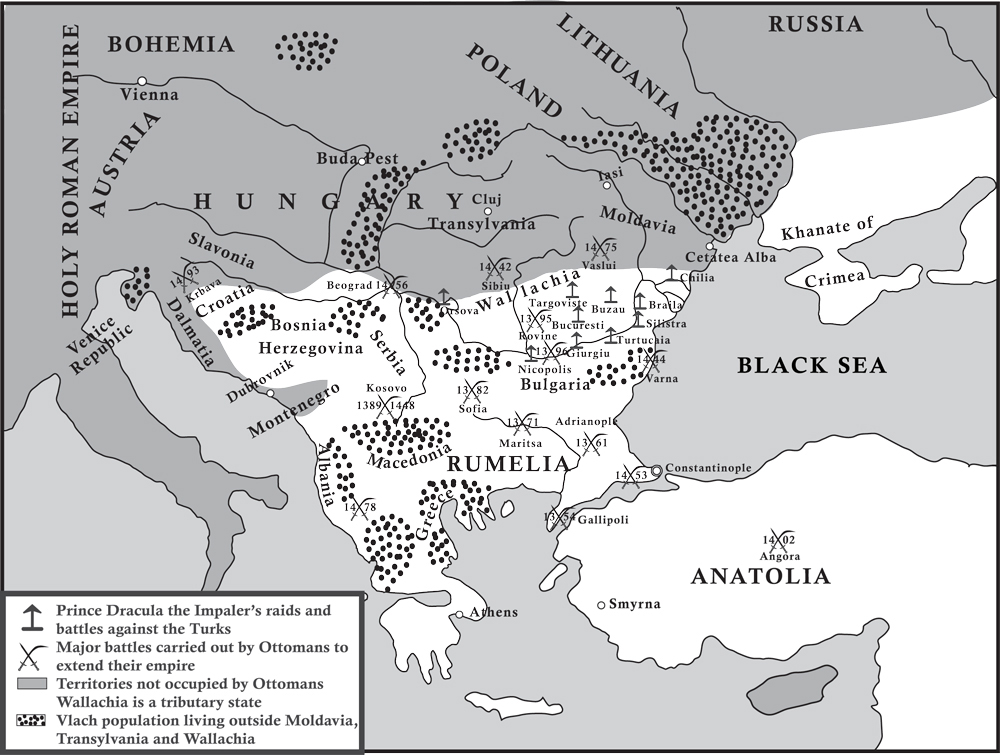
The true roots of the ongoing Greece/euro financial crisis are in the country’s history. Global economic planners need to recognize the factors that influenced tribal and feudal economy—traditions and values that have been passed down through thousands of generations and remain as firmly entrenched today as in the time of the invading hordes.
“Balkanization” is a modern term describing the fragmentation and re-division of countries and nations in the Balkan Peninsula, as well as a dynamic meaning “the Balkan way of doing things.”
The Roots of Balkanization: C.E. 500-1500 describes the historical changes that took place in the Balkan Peninsula after the collapse of the Roman Empire and their impact in Eastern lands. It develops conclusions reached in the author’s previous book, Dacia: Land of Transylvania, Cornerstone of Ancient Eastern Europe, covering 500 B.C.-A.D. 500.
Balkan multi-ethnicity was formed after the fifth century when barbarian invaders settled and violently mixed with the native ancient nations. By the use of sword and terror, warlords became kings and their confederations of tribes became state nations. New societies emerged under the blessing of the Orthodox Church, only to fight against each other over disputed land that eventually was occupied by other invaders. The involvement of western powers and the Ottoman expansion triggered more grievances and violence, culminating with the fall of Constantinople in 1453 and the end of the Byzantine Empire. What survived is the medieval culture of the Balkans that continues to play a major role in how business and political life is conducted today in Eastern Europe.
Read the conclusion of the Epilogue (free):
Centuries of civilization have wrought little change in Eastern Europe, and now the ambitious European Union is trying to teach the peoples of the Balkans to stop turning back the clock and begin enjoy a better present and future. But this is not easy. Inherited traditions are stronger than any outside influence and the Balkanized nations will probably continue to lag behind the rest of Europe politically and economically regardless of any progress they claim to make. To them, “a kick in the butt means a step forward,” but that is not the way success comes about. Their ongoing desire to craftily cheat each other and collectively cheat any system, while oligarchs dictate the governments, can only make the national prosperity a distant dream.
Can Westerners succeed in changing such old mentalities? Or they will follow the Byzantines, Russians, and Turks by merely adding new layers to the historic process of Balkanization? Most of answers are provided by the legacy of Byzantine intrigue. One fact is not like to change: the hegemony of the European Union will attract an increased number of Eastern European immigrants to the developed countries. In the Roman and Byzantine empires, this pattern resulted in the end of economic power and brought down whole civilizations. Over time, it will become clear whether the broom of history erases present differences or if the inherited roots of Balkanization will be grafted onto those of Western culture under the patronage of global brotherhood. It remains to be seen if the melting pot of the Balkans will once again boil over into a social and political disaster that is reminiscent of past history.
Certainly, the Russian President Dimitri A. Medvedev is fully aware of needed changes, among others, to eliminate the judicial corruption he calls “legal nihilism,” the Soviet era attitudes regarding work efficiency and national arrogance about being a superpower. On November 12, 2009, he delivered a speech from the Kremlin in which he called for “today’s generation of the Russian people…to make our contribution to lift up Russia to a new, higher stage in the development of our civilization.” He pointed out, “We have to acknowledge that in past years we didn’t do enough ourselves to resolve the problems we inherited.” Nevertheless, he concluded, “The strengthening of democracy does not mean the weakening of law and order. Any attempts to shatter the situation, destabilize the government and split society under demographic slogans will be prevented.”5 Similar moralistic and well intended manifestos have been delivered by each president and prime minister of each Eastern European nation since the fall of Communism, all of them ending up powerless and ultimately corrupted by the thriving Balkanization system. In any case, it is important to remember that the people of the Balkans have many strengths, and they are far from being either the worse or the best inhabitants of this planet: they are who they are.

